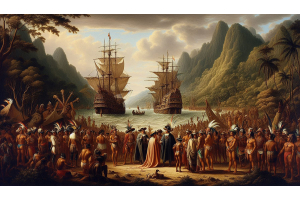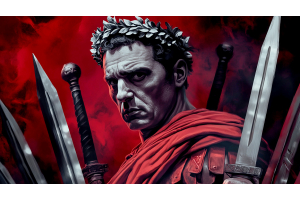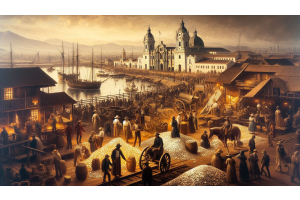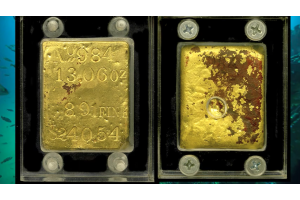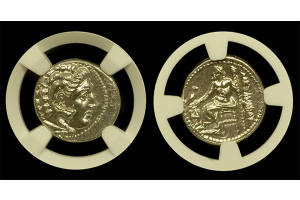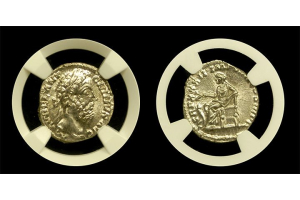The Twelve Caesars
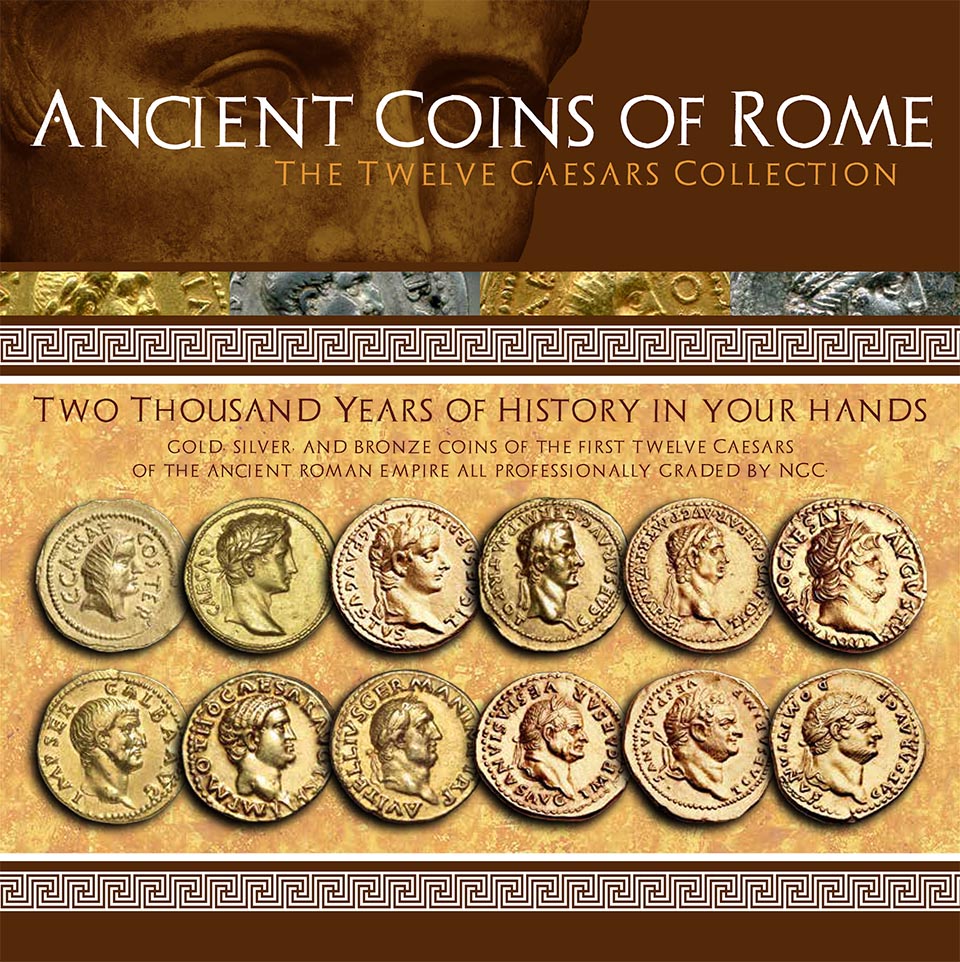
The Twelve Caesars: The Lives of Rome's First Emperors
The Twelve Caesars, immortalized by the historian Suetonius, ruled Rome through times of greatness and decline. Their stories give us a glimpse into the power, intrigue, and corruption that shaped the Roman Empire. From Julius Caesar's assassination to the fall of Domitian, each ruler played a pivotal role in shaping Roman history.
Julius Caesar: The Turning Point of the Republic
Julius Caesar was a military leader and politician who reshaped Roman politics. Born in 100 BCE, he rose through the ranks, becoming one of Rome's greatest generals. His conquest of Gaul expanded Rome's territory and made him incredibly popular. However, his ambitions worried the Senate. Fearing his growing power, a group of senators assassinated him on the Ides of March in 44 BCE. Caesar’s death marked the end of the Roman Republic and paved the way for the rise of emperors.
Augustus: Rome’s First Emperor
Augustus, Julius Caesar’s grand-nephew, became Rome’s first emperor after defeating Mark Antony and Cleopatra. Known for his political skill, Augustus restored order following years of civil war. He ushered in the Pax Romana, a period of relative peace that lasted over two centuries. Augustus expanded Rome’s borders, improved infrastructure, and reformed the army. His reign set the standard for future emperors.
Tiberius: The Reluctant Emperor
Tiberius succeeded Augustus in 14 CE, though he was a reluctant ruler. He initially gained popularity as a general, but his reign was marked by paranoia and distrust. Tiberius withdrew from public life in later years, leaving the administration to his corrupt praetorian prefect, Sejanus. His reign ended in scandal, with accusations of treachery and brutality.
Caligula: The Mad Emperor
Caligula's rule, beginning in 37 CE, became infamous for cruelty and erratic behavior. Early in his reign, he was seen as a promising leader, but illness soon took a toll. During his later years, Caligula indulged in extravagance and cruelty. These bizarre actions, such as declaring himself a god, alienated both the Senate and the people. His own guards assassinated him after a brief four-year rule.
Claudius: The Scholar Emperor
Claudius became emperor in 41 CE after Caligula’s death, despite being considered physically weak and unsuited for rule. However, Claudius proved to be an effective and capable leader. He expanded the empire by conquering Britain, reformed the bureaucracy, and improved legal processes. Though underestimated by many, Claudius left a lasting impact on Rome’s government.
Nero: The Performer Who Watched Rome Burn
Nero, who ruled from 54 CE to 68 CE, is perhaps the most notorious of the Twelve Caesars. Known for his love of the arts and theatrical performances, he neglected his duties as emperor. His reign was marked by excessive spending, persecution of Christians, and the infamous Great Fire of Rome. Many believed Nero himself started the fire, though he blamed the Christians. Ultimately, the Senate declared him a public enemy, leading to his suicide in 68 CE.
Galba, Otho, and Vitellius: The Year of the Four Emperors
Following Nero’s death, Rome plunged into chaos. In the year 69 CE, known as the Year of the Four Emperors, Galba, Otho, and Vitellius vied for power. Galba took the throne first but was quickly overthrown by Otho. Otho’s reign lasted only a few months before Vitellius, a general, took over. However, none of them could secure long-lasting control over the empire.
Vespasian: Restoring Stability
Vespasian, a former general, finally restored order to Rome in 69 CE. His reign marked the beginning of the Flavian dynasty. Vespasian focused on rebuilding the empire, especially its finances, after the turmoil of previous rulers. He began constructing the famous Colosseum and enacted reforms to restore discipline in the army.
Titus: The Conqueror of Jerusalem
Vespasian's son, Titus is best remembered for capturing Jerusalem and destroying the Second Temple in 70 CE. His reign was brief but generally well-regarded. Titus oversaw relief efforts after the eruption of Mount Vesuvius in 79 CE, which destroyed Pompeii. He ruled for only two years before dying under mysterious circumstances.
Domitian: The Paranoid Tyrant
Domitian, Titus’s younger brother, ruled Rome with an iron fist from 81 CE to 96 CE. His reign began well, with military victories and public works projects, but it quickly descended into paranoia and tyranny. Domitian became increasingly isolated, executing many perceived enemies. His own court conspired against him, leading to his assassination in 96 CE.
Legacy of the Twelve Caesars
The Twelve Caesars defined the early days of the Roman Empire. Their reigns spanned a range of personalities and styles, from the cunning and disciplined Augustus to the reckless and mad Caligula. Each emperor contributed to Rome's transformation, for better or worse. Though their rule ended with Domitian, their legacies lived on, influencing future emperors and shaping Rome’s long history.
Conclusion
In conclusion, rare Roman coins from the Twelve Caesars offer more than just a glimpse into ancient history; they are tangible connections to emperors who shaped the course of Western civilization. Collectors today value these coins not just for their historical significance, but also for their artistic craftsmanship and investment potential. For those seeking to expand their collection, Austin Rare Coins & Bullion provides an in-depth handout that dives deeper into this fascinating period. Be sure to click here to access the handout and explore the wealth of knowledge and opportunities awaiting you.






